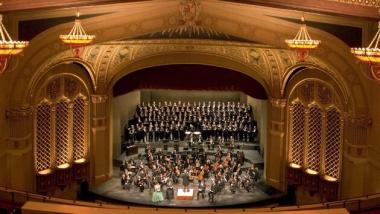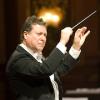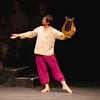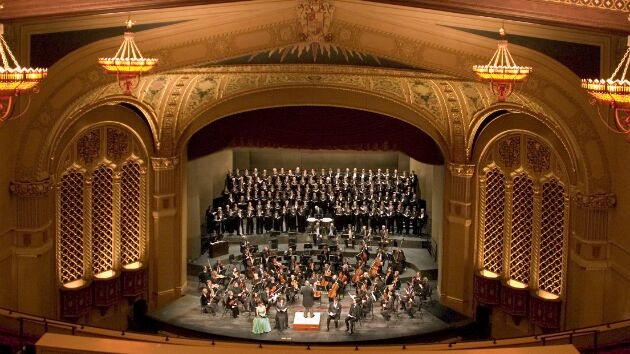
Symphony Silicon Valley concertgoers knew they’d be in good hands when John Nelson was announced as conductor of this season’s big choral concert, Franz Joseph Haydn’s The Creation (and it was The Creation, not Die Schöpfung, because it was sung in English).
Of all of SSV’s recent guest conductors, Nelson has the surest grasp of large-scale structure in the standard repertoire. I heard the first of two performances, last Saturday at San José’s California Theatre. Nelson’s brusque, yet whip-sharp, and expressive conducting proved the ideal treatment for the stiffly formal and inherently grandiose character of The Creation’s first two parts.
This was most apparent in the orchestra. A degree of patchy roughness in the playing only underlined the Beethovenian drama in Haydn’s courtlier musical language, which Nelson’s conducting elicited. Dramatic moments, like the sudden eruption of light or the first rising of the sun, and comic ones, like the contrabassoon blats as heavy beasts trod the ground, burst forth with vigor. Other specific pieces of instrumental picture-painting, of the weather or other creatures of the earth, were delightful and often funny.
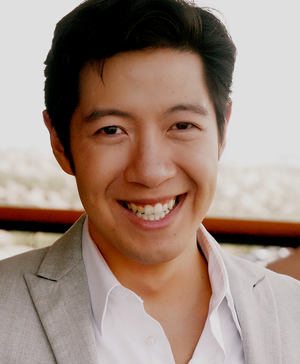
The Symphony Silicon Valley Chorale, directed by Elena Sharkova, made a noble contribution. There were a few weak spots, but despite their small number — only 65 singers, with men a distinct minority — the chorus ran fearlessly through Haydn’s complex fugatos with the full sound of a group twice its size. In quiet passages, the choral sound flickered in an appealing way.
The three soloists — the bass and soprano archangels doubled as Adam and Eve, as is frequently done — were awesome in power and presence. That SSV can command such guest performers is the greatest compliment to its artistic importance.
Bass Adam Lau was the most arresting of the singers for his profoundly deep sonority. He was of undiminished power down to about low B. That the notes immediately below did not come out quite as emphatically did not prevent him from taking up the dare of all the most undaunted basses who tackle this work, singing the D on the word “worm” at the end of the beasts-of-the-earth aria an octave below the score marking — and holding it for a bar and a half longer than Haydn specifies. This further emphasized the scene’s comic drama.
Tenor Timothy Bentch’s pure midrange voice is even more powerful and carrying than Lau’s. Abigail Santos Villalobos has a soprano that’s lighter, but equally pure and clear, and she is ready to insert ornamentations whenever desirable. All three markedly and carefully reduced their power when singing together as a trio to aid in the blending of their disparate voices. They also clearly had been asked to give priority to enunciation of the text, for they all bit off final consonants audibly, instead of eliding them as singers often do for the sake of elegance.
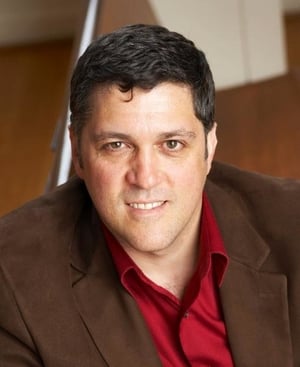
Some may consider it inappropriate to sing a German-language work in English, but, in fact, Haydn and his librettist, Gottfried van Swieten, shaped the German text and its setting to make the work as amenable as possible to English-language performance — at least as far as they were able, for neither was entirely fluent in the foreign tongue. Various English renderings exist; the uncredited one used in this performance requires, like most, various divisions and combinations of notes and additions and deletions of melismas, mostly in the recitatives. The phrasing is fairly idiomatic, though there are occasional clunkers like “Most beautiful appears with verdure young adorned the gently rolling hills.” On the other hand, using “evermore” to translate “Ewigkeit” was an inspired choice.
Considering the precision of Haydn’s picture-painting, having the accompanying words immediately understandable, without even having to glance at the supertitles (which briefly went out in Part 3, anyway), contributed greatly to audience appreciation of the work. That did mean there was no avoiding a full understanding of Eve’s worshipful submission to her husband. The words were gamely enunciated by Santos, and the music that accompanied them was sublime.

